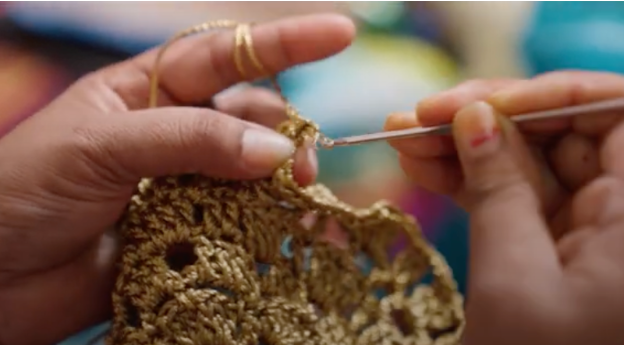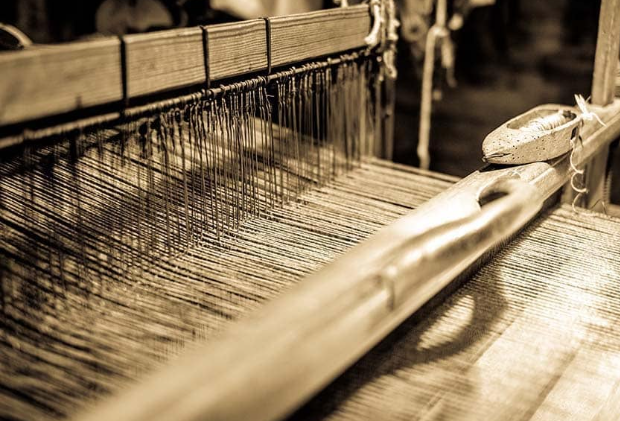Crafting A Universal Standard And Revolutionizing Certification In Home Decor And Fashion Industry
May 03, 2024 | Muskan Jangra
 In recent years, the global community has increasingly demanded greater transparency and accountability across various industries, particularly those involving home décor and fashion. This call for change has led to a critical examination of existing certification processes aimed at establishing a universally recognized standard that ensures ethical production methods, sustainable materials, and improved working conditions throughout supply chains.
In recent years, the global community has increasingly demanded greater transparency and accountability across various industries, particularly those involving home décor and fashion. This call for change has led to a critical examination of existing certification processes aimed at establishing a universally recognized standard that ensures ethical production methods, sustainable materials, and improved working conditions throughout supply chains. In this blog post, we will explore the current landscape, discuss potential improvements, and highlight the significance of rethinking certification processes in the pursuit of a more equitable future for all participants in the home décor and fashion industry.
NEST Inc., an organization focused on promoting fair labor practices and sustainability within the home decor and fashion industries, has been actively reevaluating certification processes to establish a universal standard. According to Sourcing Journal, this initiative aims to improve working conditions for artisans involved in these sectors. Additionally, NEST has implemented an Ambassador program to foster local communities and share its mission among makers in cities like Detroit and Chicago.
Industry leaders recognize the importance of addressing barriers to sustainable sourcing and the lack of clear standards to evaluate sustainability performance as major obstacles to improving public perception of brand commitments to sustainability. To overcome greenwashing concerns, which arise when brands misrepresent their environmentally friendly actions, it is crucial for organizations to demonstrate genuine progress and adherence to emerging regulatory frameworks.
As the fashion sector grapples with its environmental and social impacts, there is growing pressure from consumers, regulators, and other stakeholders to ensure that brands accurately represent their commitment to sustainability. Companies must align themselves around key functions, such as attracting and retaining top talent, to successfully navigate these challenges.
The Current State of Certification in Home Decor and Fashion
The certification process in the home decor and fashion industries plays a crucial role in upholding industry standards and ensuring quality products and services. As consumers increasingly seek transparency and authenticity in their purchases, certifications serve as indicators of credibility and compliance with industry requirements.
The current state of certification in the home decor and fashion industries encompasses various programs tailored to professionals in these fields. In the realm of interior design, certifications serve as a testament to a designer's commitment to excellence and professional growth. They cover a broad range of topics, from space planning and materials to building codes and sustainability practices, ensuring comprehensive and current skill sets.
These certifications are not universally mandatory but can significantly bolster job prospects, demonstrating a formal understanding of design principles, industry standards, and commitment to the profession. For individuals interested in interior decorating and home staging, there are certificate programs available that provide a comprehensive introduction to the art and science of transforming spaces into functional and aesthetically pleasing environments. These programs cover topics such as color theory, illusion design, fabric and design trends, furniture, and interior design careers. While decorators are not required to be licensed, these programs offer valuable knowledge and skills for creating beautiful interiors.
The interior design world is regulated by state-specific licensing and certifications, with each U.S. state having its own unique set of standards and requirements for practicing this dynamic profession. Some states have embraced formal licensure requirements for interior designers, while others do not have specific requirements. The National Council for Interior Design Qualification (NCIDQ) examination plays a significant role in ensuring competency, and some states mandate certification or licensure for interior designers.
In the fashion industry, specific programs such as the Interior Design Certificate program provide students with a broad-based, hands-on education geared toward developing skills in this field. These programs equip individuals with the necessary knowledge and expertise to pursue careers in interior design, home decorating, and related areas.
Overall, the current state of certification in home decor and fashion industries reflects a diverse landscape of programs and requirements aimed at ensuring professionals possess the skills and knowledge needed to excel in their respective fields.
The State of Affairs
The home décor and fashion industries have historically faced criticism regarding their impact on the environment and human rights. However, initiatives such as Fair Trade USA, GOTS (Global Organic Textile Standard), and BSCI (Business Social Compliance Initiative) have emerged to address these issues by setting minimum requirements for responsible manufacturing practices. Despite these efforts, the fragmented nature of the market and varying levels of compliance present significant challenges to achieving widespread adoption of best practices.
The home decor and fashion industries are experiencing growth and challenges in the current landscape. According to a report by PR Newswire, the global home decor market was valued at $616.6 billion in 2019 and is estimated to reach $838.6 billion by 2027, registering a CAGR of 3.9%. The report also highlights the challenges of the industry, including the lack of infrastructure facilities and the increasing cost of raw materials.
In the fashion industry, the State of Fashion 2022 report by McKinsey shows that the industry is cautiously optimistic about the year ahead, with some global markets starting to recover after 18 to 20 months of pandemic-related restrictions. However, the report also highlights challenges such as supply chain stresses, a degree of uncertainty across some geographies and parts of the industry, and the need for prudence as an increasingly inconsistent overall picture emerges.
The Cut Fashion Academy offers a comprehensive introduction to the art and science of transforming spaces into functional and aesthetically pleasing environments through its Home Decorating program. The program provides a combination of theory and practical exercises to equip students with the skills and knowledge to create stunning interiors that are both beautiful and functional.
Overall, the home decor and fashion industries are experiencing growth and challenges in the current landscape. The increasing demand for sustainable and eco-friendly products presents an opportunity for the industry to adopt sustainable materials and production practices, reduce waste and energy usage, and educate consumers about the sustainability of their products. However, challenges such as supply chain stresses, rising shipping costs, and the availability of low-quality and counterfeit products restrict the growth of the industry.
Challenges and Opportunities
To create a truly universal standard, several hurdles need to be addressed:
Lack of Consistency: Different certifications may use distinct criteria or methodologies, making it difficult for manufacturers to meet multiple standards simultaneously. A unified approach would streamline the process while maintaining high-quality benchmarks.
Greenwashing Concerns: Brands often face accusations of exaggerating their eco-friendly credentials. By implementing robust verification systems, third parties can help prevent false claims and promote authenticity.
Cost Barriers: Smaller businesses might struggle to afford expensive certifications, leading them to opt out of participating altogether. Developing cost-effective solutions could encourage broader participation without compromising quality.
Complex Supply Chains: With numerous intermediaries between raw material extraction and final product delivery, ensuring traceability and monitoring compliance becomes challenging. Blockchain technology offers promising opportunities to enhance visibility and trustworthiness.
Challenges and Opportunities in Home Décor and Fashion Certification Landscape
This table highlights the main challenges and corresponding opportunities facing the home décor and fashion industries in terms of certification and sustainability. It serves as a concise reference point for discussing the complex dynamics shaping the future of these industries.
Innovative Approaches: How Technology Can Transform the Certification Process
Innovative approaches leveraging technology hold great promise for transforming the certification process in the home decor and fashion industries. By integrating cutting-edge technologies, such as AI, IoT, blockchain, and cloud computing, organizations can enhance traceability, transparency, and efficiency in their supply chains. Here are three ways technology can contribute to a more efficient and reliable certification system:
Real-Time Data Collection and Analysis: IoT sensors embedded in factories, warehouses, and transportation vehicles enable the collection of vast amounts of data about production processes, worker safety, and resource consumption. Advanced analytics powered by AI algorithms can then analyze this data to identify patterns, detect anomalies, and predict future outcomes. For example, smart textiles equipped with IoT devices can monitor the wearer's body temperature, heart rate, and movement patterns, providing valuable insights into clothing comfort and durability.
Blockchain-Based Tracking System: Blockchain technology enables secure, decentralized recordkeeping, allowing stakeholders to track the origin and history of goods along the entire supply chain. This level of transparency empowers consumers to make informed decisions about the products they purchase, encourages manufacturers to maintain higher standards, and helps governments enforce regulations. Furthermore, blockchain-powered smart contracts can automate transactions and facilitate payments, thereby minimizing errors and delays.
Cloud Computing and Remote Auditing: Cloud platforms allow organizations to store and access large volumes of data remotely, facilitating remote auditing and inspection. This reduces travel expenses, saves time, and decreases the risk of disruption caused by natural disasters or pandemics. Moreover, cloud-based applications can integrate seamlessly with IoT devices and blockchain networks, offering a holistic view of the supply chain and simplifying the certification process.
These innovative approaches can help overcome the challenges currently faced by the home decor and fashion industries, such as complex supply chains, greenwashing concerns, and limited resources for small businesses. By collaborating and scaling effective models, organizations can drive positive changes towards a more sustainable, inclusive, and resilient future for everyone involved in the value chain.
The Role of Sustainability and Ethics in Setting New Certification Benchmarks
Sustainability and ethics play a crucial role in setting new certification benchmarks in the home decor and fashion industries. Consumers are increasingly demanding transparency and accountability from brands, and certifications can help build trust and credibility by providing independent verification of sustainable and ethical practices. Here are some examples of how sustainability and ethics are being integrated into certification benchmarks:
The International Ethics Standards Board for Accountants (IESBA) has launched two exposure drafts proposing new ethical benchmarks for sustainability reporting and assurance. The proposed standards aim to mitigate greenwashing and elevate the quality of sustainability information, thereby fostering greater public and institutional trust in sustainability reporting and assurance. The standards cover topics such as independence, objectivity, and competence, and are aimed at professional accountants, sustainability practitioners, regulators, and investors.
The Sustainable Supply Chain Initiative (SSCI) offers a benchmarking process that recognizes third-party monitoring, auditing, and certification standards that cover key sustainability criteria and apply relevant verification practices. The SSCI evaluates applicants against the SSCI Social and Scheme Management Criteria, which define the industry’s expectations for the sustainability topics schemes should cover as well as how they should be managed. The SSCI currently benchmarks social sustainability standards under three sectoral scopes (Manufacturing and Processing; At-Sea Operations; and Primary Production, including land-based aquaculture) and is currently working to expand the scope to include environmental standards.
Sustainability certifications such as Certified B Corporation, EWG Verified, Fairtrade International, Climate Neutral, and Forest Stewardship Council (FSC) provide consumers with a way to identify products and brands that meet certain sustainability and ethical standards. For example, FSC certification ensures that wood and paper products come from responsibly managed forests that provide environmental, social, and economic benefits. Similarly, Climate Neutral certification requires companies to measure, offset, and reduce their carbon footprint, while Certified B Corporation certification evaluates a company's impact on workers, customers, suppliers, community, and the environment.
By setting new certification benchmarks that prioritize sustainability and ethics, the home decor and fashion industries can demonstrate their commitment to responsible business practices, meet consumer expectations, and contribute to a more sustainable and equitable future.
Proposed Solutions
By combining innovative approaches with established principles, we can envision a new era of certification for the home décor and fashion industries:
Collaborative Efforts: Encouraging collaboration between competing certifiers and industry associations could lead to the development of a single, comprehensive set of guidelines.
Blockchain Technology: Implementing blockchain-based tracking systems could provide real-time insights into supply chain activities, enabling transparent reporting and reducing fraudulent behavior.
Digital Verification Systems: Utilizing digital tools to verify compliance with specific standards could reduce costs associated with manual audits and increase efficiency.
Community Engagement: Empowering local communities through education programs and training sessions could equip workers with essential knowledge about their rights and responsibilities.
Continuous Improvement: Regular assessments and ongoing evaluations could incentivize companies to continually refine their operations and adopt better practices.
Conclusion
In conclusion, the home decor and fashion industries are facing increasing pressure to adopt sustainable and ethical practices, and certifications play a crucial role in building trust and credibility with consumers. The use of technology, such as AI, IoT, blockchain, and cloud computing, can enhance transparency, traceability, and efficiency in the certification process. By embracing change and setting new certification benchmarks that prioritize sustainability and ethics, the industry can contribute to a more transparent and sustainable future. The certifications available in the market, such as Certified B Corporation, EWG Verified, Fairtrade International, Climate Neutral, and Forest Stewardship Council (FSC), provide consumers with a way to identify sustainable and ethical products and brands. The industry must continue to evolve and adapt to meet the changing demands of consumers and the environment, and certifications can help drive this transformation.
Achieving a universally accepted certification standard for home décor and fashion requires concerted effort from all stakeholders—from policymakers and industry leaders to individual producers and consumers. By embracing innovation, fostering cooperation, and prioritizing ethics and sustainability, we can collectively shape a brighter future for our planet and its inhabitants. As we embark upon this journey together, let us remember that every step forward brings us closer to realizing a world where people, products, and the environment thrive harmoniously.
Recommended








